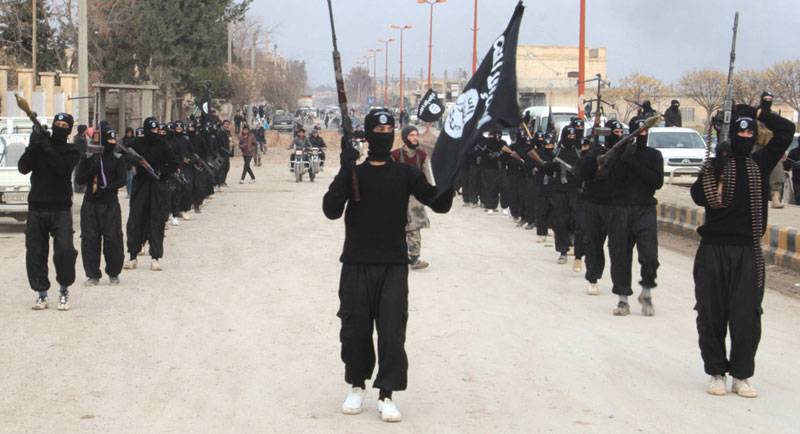The fight against the Islamic State must be a multipronged effort, designed to counter the terrorists, their ideology and their murderous strategy on every level.
An American-led military campaign is underway in Iraq and Syria. A conference on countering violent extremism held by President Obama in Washington last week has raised hopes for a more coherent international response to the ISIS public relations and ideological campaign that has lured so many young fighters into the group’s ranks. Firm and coordinated action is also required to deprive the Islamic State, also known as ISIS or ISIL, the enormous sums of money it requires to sustain its reign of terror.
ISIS’ territorial aspirations to rule huge parts of Iraq and Syria are far more ambitious than those of its predecessors, like Al Qaeda, and require more money. But this is also a serious vulnerability, according to an important new report by the Financial Action Task Force, an international body established in 1989 to combat money laundering and terrorist financing.
The needs are so great, the report says, that “it is unclear if ISIL’s revenue collection through the illicit proceeds it earns from occupation of territory, including extortion and theft, will be sustainable over time” without seizing more territory. While a huge challenge, shutting down financing streams offers an opportunity that the United States and its allies cannot afford to squander.
ISIS has set itself apart from other terrorist groups not only by its barbarity but by its dream of establishing an ‘Islamic caliphate’. It employs an estimated 30,000 fighters, including 19,000 from 90 foreign countries, who are reportedly paid $350 to $500 a month. The total monthly bill is $10 million. The group has also sought to bolster its appeal by providing public services, including electricity, to the people under its control. That, too, costs money.
A major source of revenue is selling oil from fields ISIS controls in Syria and Iraq on the black market. ISIS sells refined products to local consumers and, using middlemen and smugglers, crude oil to customers in Iraq and Syria, including the Syrian regime. ISIS reportedly charges $20 to $35 per barrel, which the middlemen then sell for as much as $100 per barrel. The oil is transported mainly in tanker trucks and oil drums; most of the transactions are in cash, which makes them hard to track and disrupt. The total amount of smuggled oil is unknown (the best estimate is 50,000 barrels a day, which could bring in more than $1 million a day) and many other details of the operation are not well understood.
So far, ISIS has been unable to fully exploit this resource. National and private-sector companies have withdrawn from ISIS-controlled areas, and the terrorists, lacking expertise, are forced to rely on primitive techniques for extracting and refining oil.
Other revenue comes from looting banks, extorting civilians, demanding ransom for kidnap victims, engaging in human trafficking, soliciting donations through nonprofit groups and even crowdsourcing on the Internet.
The international community, including through the task force, is taking steps to disrupt the financing. By damaging pipelines and refineries, America’s bombing of ISIS-controlled oil facilities has “significantly diminished” the group’s ability to extract, refine and deliver petroleum. Turkey and Iraqi Kurds have tried to control smuggling through their regions, but many experts consider the effort insufficient.
The Iraqi government and major global financial institutions have made progress in preventing banks in ISIS-held areas from accessing the international banking system. For example, Iraq’s central bank directed financial institutions incorporated in Iraq to prevent wire transfers to and from the estimated 90 banks located in ISIS-held territory, and most major financial institutions that operate internationally have severed ties with banks in Syria, especially in ISIS-controlled areas.
But more needs to be done. Governments must follow through with a United Nations Security Council mandate to make the financing of terrorist groups a crime. They must also freeze the assets of terrorist groups and their benefactors, share intelligence and crack down harder on illicit oil sales by figuring out who is trading and buying the oil and how they’re doing it. Stopping the revenue flow must be central to any serious effort to defeat ISIS.–NY Times editorial
Wednesday, April 17, 2024
To Hurt ISIS, Squeeze the Cash Flow

Pride and hype as F1 roars back to China after Covid absence
10:36 PM | April 16, 2024
No let-up in Karachi street crime incidents
10:35 PM | April 16, 2024
Stock market today: Most of Wall Street weakens again as Treasury yields rise more
10:34 PM | April 16, 2024
Muslim K-popstar Daud Kim buys land to build mosque in South Korea
10:33 PM | April 16, 2024
Punjab Stadium unavailability derails National Challenge Cup 2023 Final Round
10:28 PM | April 16, 2024
Political Reconciliation
April 16, 2024
Pricing Pressures
April 16, 2024
Western Hypocrisy
April 16, 2024
Policing Reforms
April 15, 2024
Storm Safety
April 15, 2024
Democratic harmony
April 16, 2024
Digital dilemma
April 16, 2024
Classroom crisis
April 16, 2024
Bridging gaps
April 16, 2024
Suicide awareness
April 15, 2024
ePaper - Nawaiwaqt
Advertisement
Nawaiwaqt Group | Copyright © 2024





